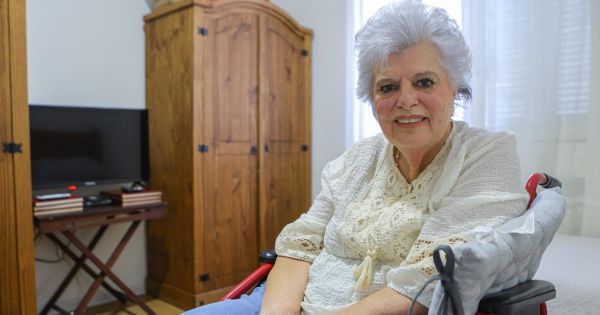Copyright mercopress

All eyes on Uruguay's volunteers for euthanasia The cases of Uruguayan nationals Pablo Cánepa, 39, and Beatriz Gelós, 71, have swept under the limelight following the enactment of the so-called Dignified Death Law bill (or Euthanasia Law). They both suffer from conditions recognized as irreversible and have expressed their intention to seek that procedure once it is finally regulated. Their cases were even mentioned in the parliamentary debate leading to the reform. Cánepa suffers from idiopathic cerebellar ataxia, a degenerative autoimmune disease with no known cure that has kept him bedridden since the age of 35. Before that, he used to work as an illustrator, play sports, and live independently. Currently, his mobility is reduced to partial movement of the fingers on one hand. “I am calm and sure of my decision. I have no hope. This is not life,” he said in an interview with Clarín. Mónica Silva, Cánepa's mother, recounted in an interview with Telemundo the moment her son asked her for help to die. “That phrase pierced my heart. But I have to accept it, because he is an adult and has full autonomy,” she said. Beatriz Gelós, who worked as a Spanish language teacher, has been battling amyotrophic lateral sclerosis (ALS) for 19 years. She was one of the visible promoters of the legal initiative, being present in the Parliament on August 12, when the Lower House passed the bill. “I have suffered; I deserve a peaceful death.” In her testimony, read out by Congressman Luis Gallo, she described her experience with the disease and her desire to be able to determine when to end her suffering. “My life would be more dignified if I could clean myself, write by hand, talk on the phone, or scratch myself,” she wrote. In a conversation with Montevideo Portal, Gelós detailed her story and her nearly two decades of living with ALS. “I understand that there are extreme situations where life is not worth living.” Although she clarifies that she does not plan to request euthanasia immediately, she assures that the existence of the law gives her peace of mind. “I don't want to use it yet. I can write, go out when I have a companion, and enjoy a literary workshop. But I know what awaits me, and I am not willing to live through it,” she said. Following the recent passage of Uruguay’s end-of-life legislation, health authorities are now tasked with developing the regulatory framework necessary for its implementation. This includes establishing detailed protocols, consent procedures, and training programs for medical personnel. The process is expected to span several months, during which safeguards will be put in place to ensure that all evaluations and interventions adhere strictly to the safety and ethical standards outlined in the law. Authorities aim to prevent any risk of arbitrariness or misinterpretation. Uruguay’s rollout will be closely monitored by neighboring countries, many of which are only beginning to debate similar measures. The practical application of the law—such as the volume of requests, patient demographics, and the robustness of oversight mechanisms—is anticipated to yield critical insights for international discussions on bioethics and legal frameworks. In this context, Uruguay’s experience is emerging as a regional test case in the evolving discourse on end-of-life rights.



